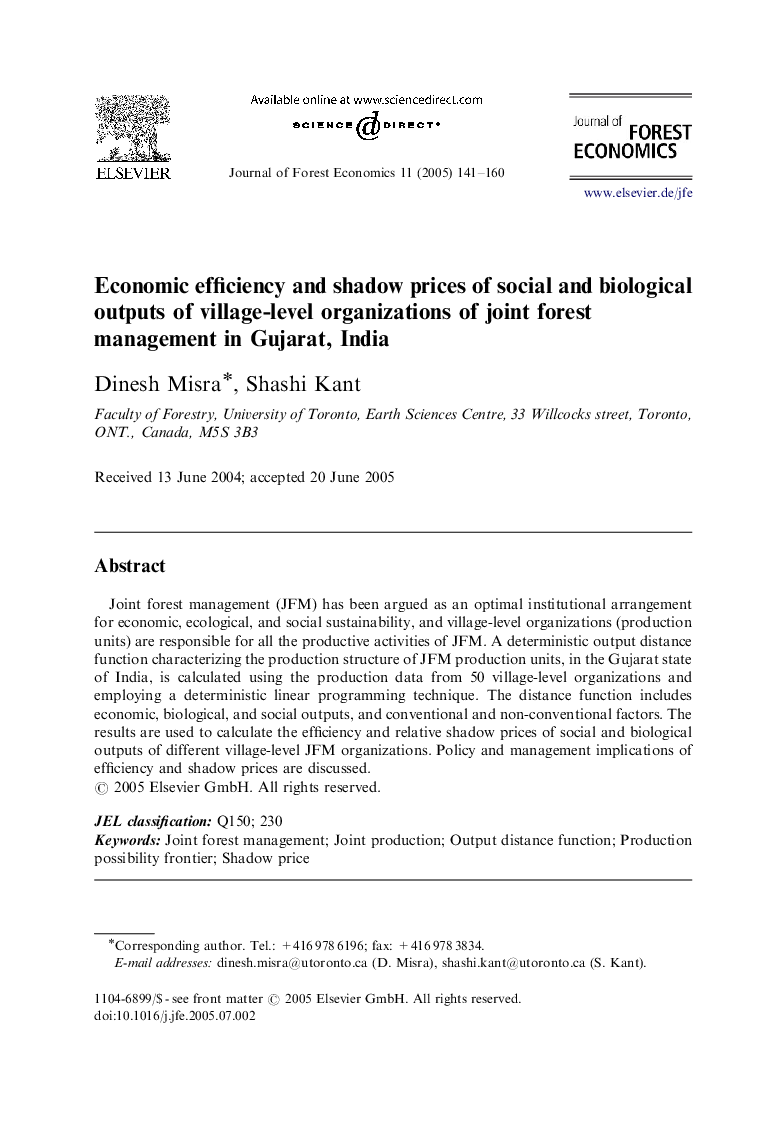| Article ID | Journal | Published Year | Pages | File Type |
|---|---|---|---|---|
| 10251402 | Journal of Forest Economics | 2005 | 20 Pages |
Abstract
Joint forest management (JFM) has been argued as an optimal institutional arrangement for economic, ecological, and social sustainability, and village-level organizations (production units) are responsible for all the productive activities of JFM. A deterministic output distance function characterizing the production structure of JFM production units, in the Gujarat state of India, is calculated using the production data from 50 village-level organizations and employing a deterministic linear programming technique. The distance function includes economic, biological, and social outputs, and conventional and non-conventional factors. The results are used to calculate the efficiency and relative shadow prices of social and biological outputs of different village-level JFM organizations. Policy and management implications of efficiency and shadow prices are discussed.
Keywords
Related Topics
Life Sciences
Agricultural and Biological Sciences
Agronomy and Crop Science
Authors
Dinesh Misra, Shashi Kant,
